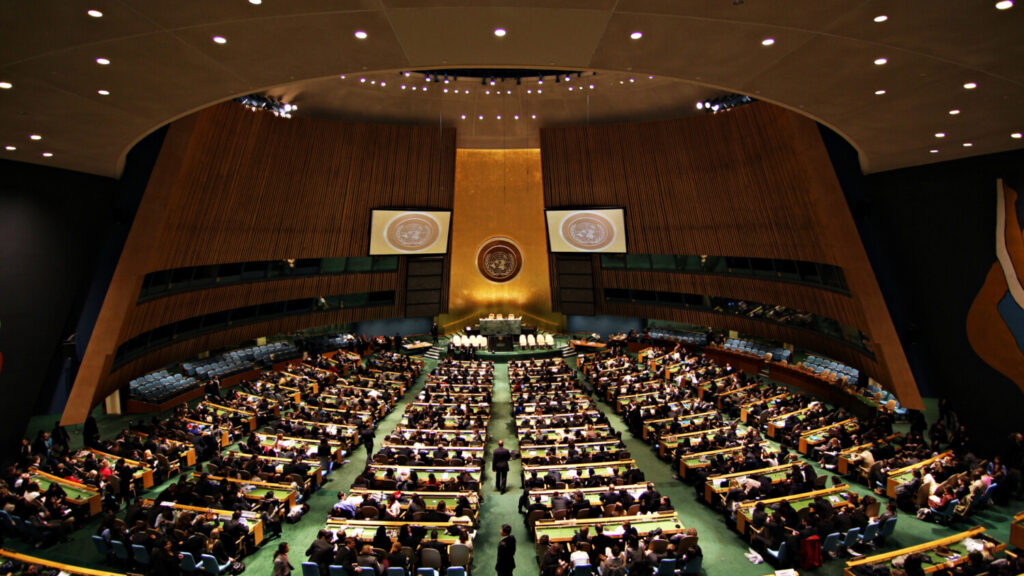EU: Business Over Principles
A Comprehensive Agreement on Investment (CAI) was definitely unexpected from the EU. Just one year ago, the organisation labelled China “a systemic rival”. More recently, it welcomed the recent US election of Biden to reinforce the transatlantic pact that had been compromised under Trump. Yet, on December 30th, that is exactly what was agreed. The decisive input to the signing of the deal came from one leader: the soon-to be ex Chancellor of Germany, Angela Merkel. Germany’s ties with China are increasing year on year, leaving many European citizens to question the direction in which their decision-makers are taking them.
Data from: Pew Research Center, “2 Attitudes towards China”, 2019
This deal is a major loss regarding the so called “strategic autonomy” that Europe has long been striving for. These investments may be a short-term victory since they could bolster the economic recovery. Yet in the long run, it will exacerbate the exact situation Europeans are currently facing, namely increasing dependence on China. Moreover, it could – and in fact it already has – give the US the impression that the EU is willing to align with a strategic rival to maintain business growth. Its pursuit of closer economic ties with China, while still counting on the US “umbrella” in the meantime in highly risky. This seems to undermine the neutrality of the EU which aims to be strategically independent.
Data from: European Council on Foreign relations- commissioned data from Datapraxis and YouGov, “If there was a disagreement between the US and China, what would you like your country to do?”, 2021
But the biggest victory to be handed to Beijing, and the gravest error that has been made, is not that of having reached the agreement in itself. Rather, having reached the agreement despite the human rights violations perpetrated by the Chinese regime in Xinjiang and Hong Kong. Failing to demand a radical change of approach towards the Uighurs as a prerequisite for the signing of the deal, has weakened the EU’s international reputation. The situation looks worse for the EU given that the US, UK and Canada are banning the sale of clothes produced through Uighur’s forced labor.
It is undeniable that the EU, notwithstanding the declarations of multiple leaders and MEP’s, has not tried to force Beijing make concessions on these crucial issues and hold them accountable. The message that the twenty-seven member states are giving through this deal is that business comes over values. This cannot be the message that a Union founded on the rule of law, the principle of human rights and mutual prosperity, can give. This implies that China’s influence has grown to the point that some of the most important democracies in the world are willing to sacrifice their principles in exchange for access to the market.
However, the acceptance of human rights violations poses an internal problem. How can the Union be more strategically independent if it allows member states (Poland and Hungary in particular) to freely violate the rule of law without fearing real consequences or backlash? Strategic independence is undermined if there is not a clear set of values that all the members are bound to respect and uphold.
The EU’s motto “in varietate concordia” (united in diversity), cannot properly work without a common approach towards human rights violations. Twenty-seven different member states cannot be deemed united, if they are not ready to fight for and protect the same basic democratic principles.
The EU’s foundation ultimately prevents its from fulfilling its potential geopolitical role. The rule of unanimity is still required for the most important votes to pass in the EU Council. This requirement had proven to be a huge problem recently in approving the so called “rule of law mechanism”, that links the disbursement of the Recovery Fund to Member States to their respect for the rule of law. In order to win the Polish and Hungarian vetoes, the EU Council had to make several concessions.
Data from: European Parliament survey conducted by Kantar, “77% of respondents across the EU say: No EU money without full respect of the Rule of Law and democratic values”, 2020
With that said, the upcoming “Conference on the Future of Europe” will be a foundational moment for the EU’s future. This will, although not drastically, change the current state of affairs. Up to that moment, the EU is still nothing more than a regulatory power, and unless it will be able to address the above mentioned problems it is unlikely to find a way out of the geopolitical maze in which it is currently trapped.
References:
Politico Europe (2021), “How Germany opened the door to China- and threw away the key”. Available online at: https://www.politico.eu/article/germany-china-economy-business-technology-industry-trade-security/amp/?__twitter_impression=true
Foreign Policy (2021), “What Merkel really thinks about China and the World”. Available online at : https://foreignpolicy.com/2020/12/31/what-merkel-really-thinks-about-china-and-the-world/
Groupe d’études géopolitiques (2021), « European strategic autonomy in 2020 ». Available online at : https://geopolitique.eu/en/2020/12/29/european-strategic-autonomy-in-2020/
Le Grand Continent (2021), « Comment définir les contours de l’Europe Puissance ». Available online at : https://legrandcontinent.eu/fr/2021/01/08/comment-definir-les-contours-de-leurope-puissance/
Politico Europe (2021), “With China Deal- the Eu leaves the hard part to Washington”. Available online at: https://www.politico.eu/article/china-eu-investment-deal-leaves-hard-part-to-washington/amp/?__twitter_impression=true
Politico Europe (2020), “Merkel looks east as ties fray between Germany and the US”. Available online at : https://www.politico.eu/article/merkel-looks-east-as-ties-fray-between-germany-and-us/
European Council on Foreign relations (2020), “The new China consensus, how Europe is growing wary of Beijing”. Available online at : https://ecfr.eu/publication/the_new_china_consensus_how_europe_is_growing_wary_of_beijing/



